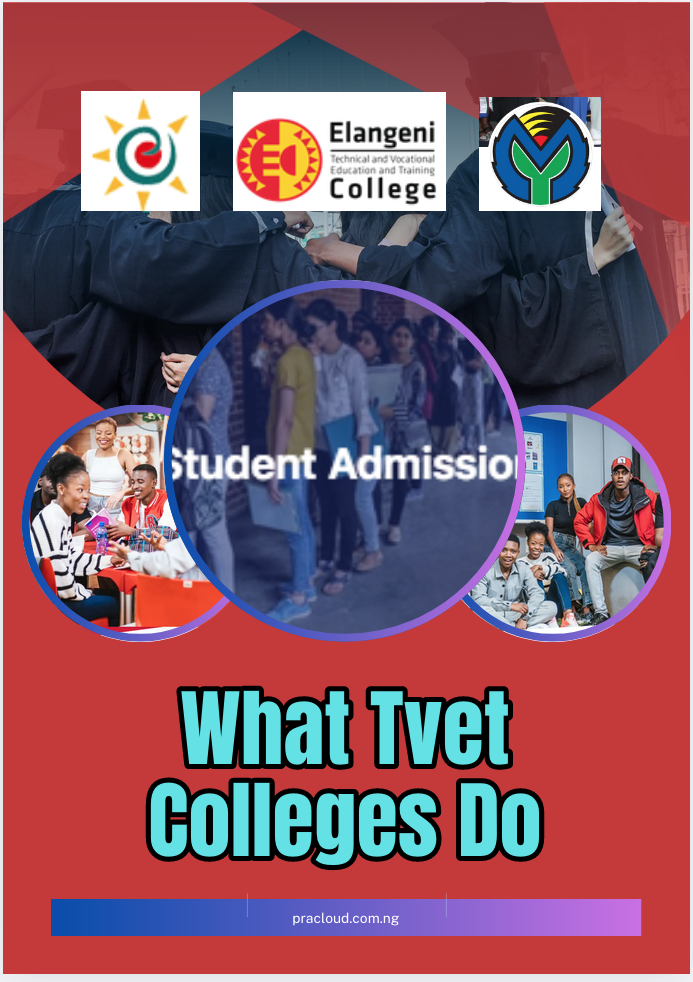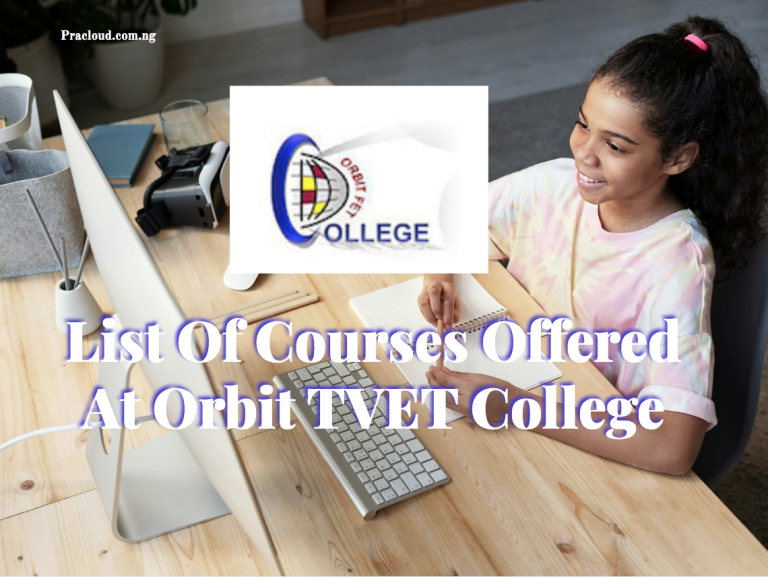What Tvet Colleges Do
What Tvet Colleges Do
What Tvet Colleges Do
What Tvet Colleges Do: Late Online Application Dates
Technical and Vocational Education and Training (TVET) colleges in South Africa focus on giving students the practical skills and theoretical knowledge they need to succeed in specific careers. Unlike traditional universities that are more research-based, TVET colleges are designed to prepare students for the workplace or to start their own businesses.
These colleges offer a wide range of programmes in fields such as engineering, information technology, business studies, hospitality, agriculture, and healthcare. Courses are usually aligned with industry needs so that graduates can step directly into jobs that are in demand. For example, a student might complete a qualification in electrical engineering, plumbing, or financial management, all of which are aimed at filling critical skills gaps in the economy.
TVET colleges provide different learning options, including full-time, part-time, and even distance learning, making it easier for people to study while working or managing other responsibilities. Their qualifications include the National Certificate Vocational (NCV) and NATED (Report 191) programmes, which are recognised across South Africa and can lead to further education opportunities at universities of technology. Beyond classroom learning, many TVET programmes include workplace-based training, giving students valuable hands-on experience before they graduate.
This approach helps improve employability and ensures graduates are job-ready. TVET colleges equip students with practical skills, recognised qualifications, and work experience, creating pathways to employment, entrepreneurship, or further studies. They are a vital part of South Africa’s education system, helping to reduce unemployment and support economic growth by producing skilled, work-ready graduates.
Read Also: How Many TVET Colleges Online Application Forms
What Tvet Colleges Do
below is what tvet Colleges do:
Practical Skills and Industry-Focused Training:
- TVET colleges offer a wide range of programmes in areas such as engineering, business management, information technology, hospitality, agriculture, and health sciences.
- These courses are carefully designed to match the skills required by employers.
- For example, a student may study electrical engineering, plumbing, or financial management fields that are always in demand across South Africa.
Recognised Qualifications:
- Students at TVET colleges can earn recognised qualifications like the National Certificate Vocational (NCV) and NATED (Report 191) programmes.
- These qualifications are accepted nationwide and can also serve as a stepping stone to further studies at universities of technology.
Flexible Learning Options:
- TVET colleges provide full-time, part-time, and distance-learning opportunities.
- This flexibility makes it easier for students who are working or managing other responsibilities to further their education and improve their skills.
Workplace-Based Experience:
- Many TVET programmes include on-the-job training or internships.
- This hands-on experience allows students to apply what they have learned in real work environments, improving their confidence and employability.
Below are the Courses offered at TVET College
Please take any of the courses listed below:
- Education and Development
- Finance, Economics, and Accounting
- Information Technology and Computer Practice
- Mechatronics
- Office Administration Tourism
- Civil Engineering and Building Construction
- Electrical Infrastructure Construction
- Engineering and Related Design
- Safety In Society
- National Skill Fund ( NSF Project )
- Automotive Repair and Maintenance
- Fitting
- Mechatronics
- Motor Mechanic
- Wholesale and Retail Operations
- Water and Wastewater Treatment
- Water Reticulation Services
- End-User computing
- General Security Practice
- Sports coaching
- Accounting Technician
- Fibre Processing and Manufacturing ( FP & M SETA)
- Furniture Making
- Health and Wealth (HWSETA)
- Fitting and Turning
- Electrical
- Automotive
- Education, Training, and Development Practices ( ETDP-SETA)
- Early Childhood Development
- Wholesale and Retail SETA
- Wholesale and Retail Operations
Who qualifies to attend a TVET College?
One may also be curious as to who qualifies to study at a TVET college:
A significant focus on student employability is one of the benefits of attending a TVET college, with part of the curriculum requiring students to do experiential training (internships and apprenticeships), which can help you develop experience for your CV.
TVET Colleges, which are part of the Higher Education system, admit students who have completed Grades 9, 10, 11, or 12 in high school. University post-graduates can also enrol in TVET College courses to gain further practical experience.
To study at a Technical Vocational Education and Training (TVET) college, you must have the following:
- Be at least 16 years old
- Have a Grade 9 Qualification or ABET Level 4 Certificate
Technical Vocational Education and Training (TVET) colleges offer vocational training to students as a way to prepare them for work. They can utilise these skills for employment or business purposes.
TVET colleges are best suited for someone who prefers practical learning over theoretical studies. You can apply and start pursuing the career you want after completing a course at a TVET College. Late Online Application Dates
Tvet Colleges Contact Information
- Visit: 123 Francis Baard Street, Pretoria, South Africa
- Private Bag X174, Pretoria, 0001
- Contact Details: 0800 87 2222/+ 27 12 312 5911
- Email: callcentre@dhet.gov.za
TVET colleges are vital to South Africa’s economy and education system. They prepare students for employment, entrepreneurship, or advanced studies by offering practical skills, industry-relevant training, and nationally recognised qualifications, helping reduce unemployment and supporting economic growth.
RELATED ARTICLE:






